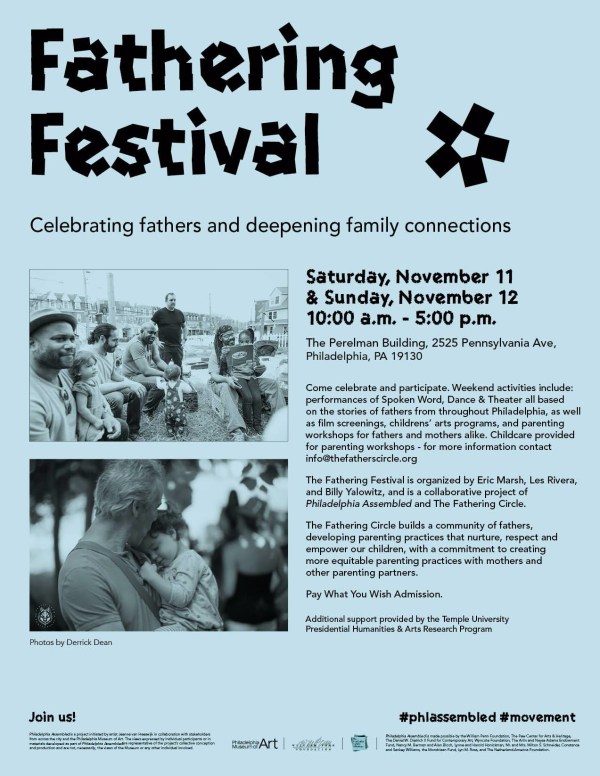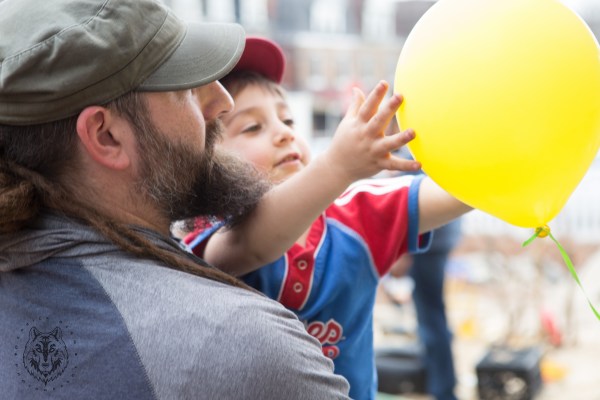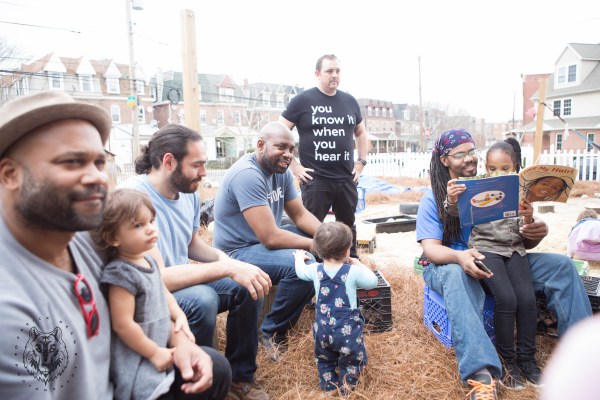The Fathering Circle peer-support circles happens every Monday from 6 until 7:30 PM at 3509 Spring Garden Avenue in Philadelphia at Drexel University's Dornsife Center at the Philip E. Lindy House. Our sessions are open to men 17 years old and over who are actively engaged in raising a young person. Participants do not have... Continue Reading →
TFC Fathering Festival
The Fathering Festival: celebrating fathers and deepening connections among them. The Fathering Festival presented by The Fathering Circle is dedicated to building tools to free fathers of the constraints of limiting male behavior patterns as we develop parenting practices that nurture, respect and empower our children, creating more equitable parenting practices with mothers and other parenting... Continue Reading →
The Fathering Circle Key Principals
The Fathering Circle's Key Principals.
Re-examining parenting from the inside out.
Being a parent isn't easy.
Being a parent, male or female is one of the hardest roles anyone could ever hold.



